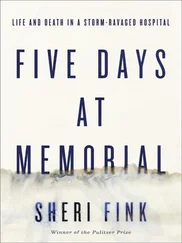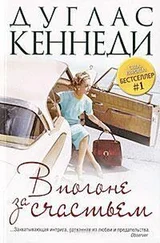Дуглас Кеннеди - Five Days
Здесь есть возможность читать онлайн «Дуглас Кеннеди - Five Days» весь текст электронной книги совершенно бесплатно (целиком полную версию без сокращений). В некоторых случаях можно слушать аудио, скачать через торрент в формате fb2 и присутствует краткое содержание. Год выпуска: 2015, Жанр: Современная проза, на английском языке. Описание произведения, (предисловие) а так же отзывы посетителей доступны на портале библиотеки ЛибКат.
- Название:Five Days
- Автор:
- Жанр:
- Год:2015
- ISBN:нет данных
- Рейтинг книги:4 / 5. Голосов: 1
-
Избранное:Добавить в избранное
- Отзывы:
-
Ваша оценка:
- 80
- 1
- 2
- 3
- 4
- 5
Five Days: краткое содержание, описание и аннотация
Предлагаем к чтению аннотацию, описание, краткое содержание или предисловие (зависит от того, что написал сам автор книги «Five Days»). Если вы не нашли необходимую информацию о книге — напишите в комментариях, мы постараемся отыскать её.
Five Days — читать онлайн бесплатно полную книгу (весь текст) целиком
Ниже представлен текст книги, разбитый по страницам. Система сохранения места последней прочитанной страницы, позволяет с удобством читать онлайн бесплатно книгу «Five Days», без необходимости каждый раз заново искать на чём Вы остановились. Поставьте закладку, и сможете в любой момент перейти на страницу, на которой закончили чтение.
Интервал:
Закладка:
‘I am so sorry for blubbering like that earlier,’ I said.
‘Never be sorry for that. Never.’
‘But I am. Because I was brought up by a mother who thought crying was something akin to a profound character flaw, and a dad who spent much of his life dodging any direct emotion whatsoever. So to cry, openly. I’ve managed to sidestep that one for most of my life. Until recently.’
‘And what changed recently?’
‘Good question,’ I said as the drinks arrived.
‘Hope you approve,’ the waiter said as he put the two cocktail glasses before us.
‘Here’s to. complex smoothness?’ Richard asked, raising his glass.
Hoisting mine I said:
‘How about. to us.’
Richard smiled. And touched his glass against mine.
‘I like that,’ I said. ‘To us.’
‘To us.’
I sipped the manhattan.
‘My word,’ I said, ‘dense libidinous fluency.’
‘Or. libational eloquence.’
‘Or. spiritous volubility.’
‘Or. no, I can’t top that,’ Richard said.
‘I bet you can.’
‘You’re wonderful, did you know that?’
‘Until this afternoon. no, I didn’t know that. And you’re wonderful, did you know that?’
‘Until this afternoon. ’
I raised my glass again to his.
‘To us.’
‘To us.’
‘And yes,’ I said, ‘I do find myself crying frequently these days. Half the time I think it’s about all the usual unsettling thoughts that arrive with middle age. But maybe it’s also about my husband. And about my children and all the stuff that seems to be blindsiding both of them all the time. Maybe also about the fact that my work now seems to impact on me in a way that it never used to. That’s what unnerves me the most — the loss of professional detachment.’
‘But surely that’s linked with all the stuff at home.’
‘When Ben had his breakdown. ’
Over the next half an hour or so, Richard got me talking in more detail about all that had befallen Ben; how his depression had only widened the gulf between him and his father, and the way he was inching his way back to some sort of stability.
The first manhattan cocktail was drained. And so was I.
‘I’ve talked far too much,’ I said.
‘Not at all.’
‘I’ve bent your ear.’
‘But I wanted my ear bent. And after having told you all about Billy this afternoon. ’
‘I’m not usually comfortable talking about personal stuff.’
‘But it’s about you. And I want to know everything about you.’
‘Can we ever know everything about another person?’
‘Everything? As in, the whole, the aggregate, the entirety?’
‘Or to be colloquial, all but the kitchen sink, the whole megillah.’
‘No, we can hardly know the corpus, the lot,’ he said, while motioning to the waiter to bring us two more drinks. ‘But if you are drawn to someone, surely you want to know about—’
‘Eric,’ I heard myself saying. As I said it, it struck me that, outside of this afternoon, when I mentioned his name, the word ‘Eric’ had been banished from my vocabulary. Outside of Lucy — to whom I told the story early on in our friendship — no one else knew about his existence. No one except Dan and my parents. But Mom and Dad never raised the subject of Eric — largely because they both knew it was something I didn’t want to talk about, let alone consider. And Dan dodged it completely — for all sorts of self-evident reasons. Even Lucy — having heard the tale — never made reference to it. She understood it was so off-limits. The forbidden topic.
But now.
‘Eric Lachtmann,’ I said. ‘A New Yorker. From Long Island. German-Jewish background. His grandfather was a jeweler in the Diamond District of Manhattan, his dad a CPA, his mom classic frustrated housewife territory. Two older brothers, both heading into business careers. And Eric — who had decided at the age of fifteen that he was going to be a Great American Novelist — also spent much of high school pursuing arty pursuits and not caring very much about class work, with the result that his college choices were not exactly prestigious ones. A couple of the better state universities in New York wanted him. He was wait-listed at Wisconsin. But — as he told me later — something about being “way up in the Maine sticks” really appealed to him. If I remember correctly, he told me that his decision was partially based on the fact that, during his senior year in high school, he’d been reading all those early Hemingway stories set up in northern Michigan — and had this romantic notion that landing himself into the boondocks was an essential part of his “writerly training”. Of course he was also planning to live in Paris, and travel overland to Patagonia, and get his first novel published by the time he was twenty-five, and marry me and bring me everywhere.
‘That was so Eric. Big talk. Big plans. Big brain. Probably the smartest person I’d ever met. But the thing about him was, though he talked in a grandiose way, there was always real substance behind the talk. Even at eighteen he put his money where his mouth was. And he was already, by the time I met him, living a writerly life.
‘He was quite the character at U Maine. You remember how conservative the school was, how State U, how the student body was largely rural and backwater. And how few out-of-staters there were. Here was Eric — this “Manhattanite in waiting” as he called himself — dashing around the campus in a black trenchcoat, sporting a fedora, with these ultra-smelly French cigarettes on the go all the time. He’d found a place in Orono where he could actually buy Gitanes — those cigarettes he so adored — and a daily copy of the New York Times, at a time when that newspaper was something of a cargo cult up in Maine. And he was always talking books, books, books. And foreign movies. Within his first semester at Orono, not only had he taken over the college Film Society and was programming an Ingmar Bergman retrospective, but he was also fiction editor of The Open Field. Which is where I met him. I had talked my way onto the editorial committee of the magazine, even though I was pre-med and clearly not the type the magazine attracted. As you no doubt remember from your own time up there, Orono did boast a small bohemian coterie within their student body — who, like Eric, had ended up there after less-than-brilliant high school careers, but still were very determined to act as if they were all up at Columbia during the era of Ginsberg and Kerouac.’
‘And was that your story?’ Richard asked. ‘Did you end up there because you hadn’t been as rigorous as you should have been during high school?’
‘No — I ended up there courtesy of my own profound need to self-sabotage.’
And I told him all about being accepted at Bowdoin on a partial scholarship, and turning it down because I could go to U Maine for nothing.
‘So that is still a source of immense regret?’
‘Of course it is. Because — and I only realize this now — it was the start of a process in which I began to deliberately sell myself short. Clip my wings. Limit my latitude. Still, had I gone to Bowdoin I would never have met Eric. And had I not met Eric. ’
The second round of drinks arrived. We touched glasses. I took a long sip of the manhattan, part of me telling myself that I should stop talking now.
But the other part of me — fueled, no doubt, by the alcohol, by the low lighting and subdued intimacy of the lounge, and (most of all) by the profound need and desire I felt to impart this story to Richard — forced myself to keep talking.
‘So I walked into an editorial meeting of the magazine, having heard word around campus about this smart-assed New York guy who talked a mile a minute and seemed bent on refashioning everything arts-wise at the university to his own liking. Here I was this bookish, science-oriented girl from a middling Maine town, still a virgin —’ (God, the manhattans really were playing havoc with my sense of propriety) ‘and someone who always felt herself plain, unattractive, especially when compared to all the so-called “popular” girls at school. As I walked into the magazine’s office, Eric looked up at me. In that very instant. well, I just knew. Just as Eric knew. Or so he told me three days later, after we slept together for the first time. That’s right — even though I was just eighteen and completely inexperienced, and Eric, as it turned out, had only had one serious girlfriend before me, and that was just a summer fling — we became lovers in a matter of days. Immediately after that editorial meeting where we first met, he invited me to a local bar — remember when you could drink in Maine at eighteen? — and we must have spent the next six hours there, nursing beers, talking, talking, talking. By the time he walked me home to my dorm that night, I knew I was madly in love. We saw each other the next evening — talking, talking, talking until around three in the morning. Even though we were in his dorm room, he made no move, put me under no pressure whatsoever. Instead he walked me home, kissed me lightly on the lips and told me that I was “nothing less than extraordinary”. No one had ever said that to me before. No one after Eric ever did either. until you said something very similar just a little while ago. The next night — it was a Saturday — when we found ourselves still talking in my room at two, and he wondered out loud if he should go home, I told him I wanted him to stay. It was my choice, my call. When we awoke the next morning, he told me, quite simply, that he loved me — and that we were now inseparable. And I told him I loved him, and would never love anyone else.
Читать дальшеИнтервал:
Закладка:
Похожие книги на «Five Days»
Представляем Вашему вниманию похожие книги на «Five Days» списком для выбора. Мы отобрали схожую по названию и смыслу литературу в надежде предоставить читателям больше вариантов отыскать новые, интересные, ещё непрочитанные произведения.
Обсуждение, отзывы о книге «Five Days» и просто собственные мнения читателей. Оставьте ваши комментарии, напишите, что Вы думаете о произведении, его смысле или главных героях. Укажите что конкретно понравилось, а что нет, и почему Вы так считаете.












